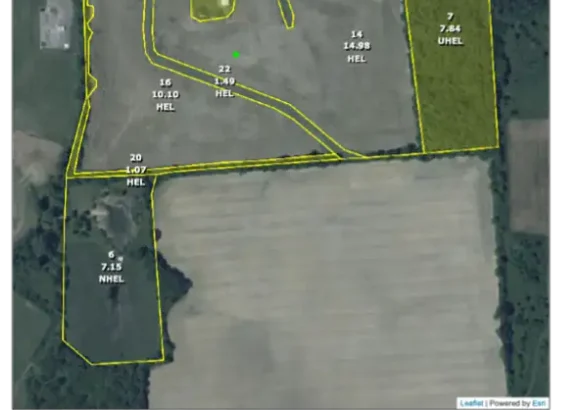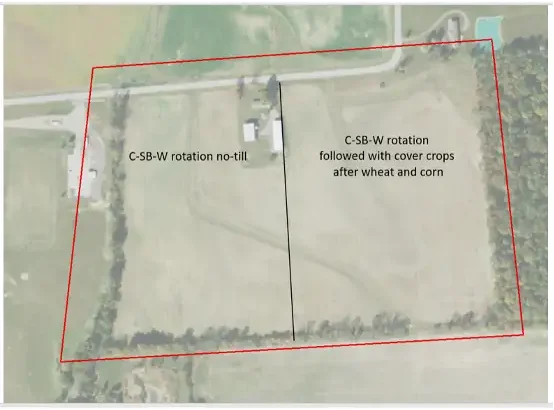Introduction:
Through the interest of the Logan County Solid Waste District to reduce their Carbon Footprint and to educate Agricultural Producers on how to reduce their Carbon Intensity impact, the following project is proposed.
Historically the project began working with individual Agricultural Producers on selected fields throughout Logan County:
These results were inconclusive, reliability on regenerative practices were not timely and the Project Team felt that a fresh look on program development was needed. Thus, a new approach has been planned and will be described below. The goal of this new approach will include more control along with more emphasis on timely measures being completed and a field side by side comparison of “Regenerative Measures” vs “Standard Practices”. At harvest time a weigh-wagon will be used to monitor yields from each treatment so that economic data can be provided.
Benjamin Logan Schools will continue to receive the proceeds from the harvested crop. 10% of those proceeds will be returned to the project each year to improve development of the project, activate outreach efforts about the project and to improve/enhance phases of the project resulting in improved environmental conditions.
Project Plan:
The Project Team of Tim Lyden and Bob Stoll have proposed the following program to demonstrate the efforts of “Regenerative Agricultural” Practices on Carbon Intensity and how these practices impact the soil health, water infiltration, fertility, and overall Environmental conditions on this site.
The project team approached Lora James- Vocational Ag Instructor, John Scheu- Superintendent and Tim Scheiderer- Buildings and Grounds Supt. at Benjamin Logan Schools to see if the school farm was available to be used as a demonstration farm for these “Regenerative Practices”.
The farm would be divided into 2 equal quadrants, each equaling approximately 12.5 acres. The west quadrant would continue to be farmed in the rotation that historically persists on the farm which is a: corn- soybean rotation using no-till, wheat will be added to this rotation so that both fields follow the same grain crop rotation. The east quadrant would follow a corn-soybean-wheat rotation, using no-till but after wheat a muti seed cover crop would be drilled and allowed to grow all the way through termination. After the corn crop was planted the following spring. Corn would be harvested, and again a cover crop would be established immediately which would be followed by soybeans planted in the spring.
An independent crop advisor will be utilized to manage soil tests and fertilizer recommendations along with pest scouting. Logan SWCD Staff would begin with baseline water infiltration testing points along with soil slake test. These tests would be visually recorded for documentation of change so that this information could be presented to groups later.
The project period is indefinite, the team recognizes that to show improvement at this site a minimum of 10 years is needed and possibly longer. As the project develops it is the hope of the team that the benefits of these “Regenerative Practices” are clear and that this will build support to continue the project into the future and will convince many other producers to make these changes on their own farm.



